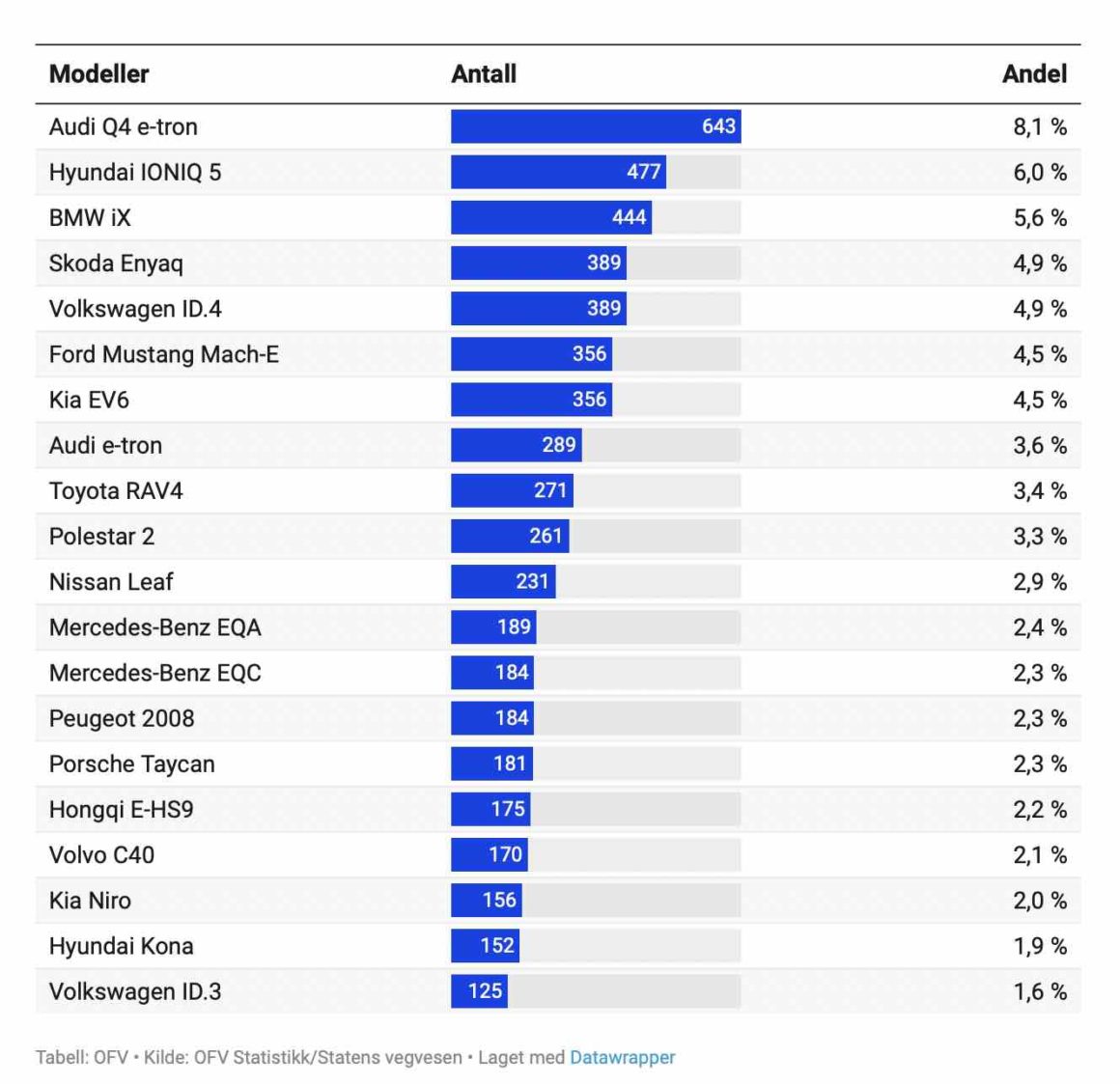Official numbers published this week have revealed that 83.7% of all new cars sold across Norway in January were electric vehicles, with 19 of the top 20 vehicles coming with a cable.
The record month for EV sales in Norway came at the same time as passenger car sales plummeted, with only 7,957 new passenger vehicles registered during January – 2,344 fewer than were registered in 2021.
In fact, according to the Norwegian Road Traffic Information Council (OFV), the last time car sales were that low in January was back in 2009 – in the middle of the recession.
Nevertheless, electric vehicles accounted for 83.7% of all new vehicles registered in Norway in January, well ahead of the previous record, set in September 2021 with 77%, and well up on the 53% recorded for January 2021.
Numbers from the OFV appear to separate zero-emission vehicles (including electric vehicles and hydrogen-powered vehicles) from hybrid vehicles, which are themselves separated into rechargeable hybrids and non-rechargeable hybrids.
The good news, then, is that, of the 7,957 new passenger vehicles registered in January, the record 83.7% refers only to fully electric vehicles, with 6,659 new EVs (and one hydrogen-powered EV) registered. New rechargeable vehicles totalled 910, accounting for 11.5% of new vehicles registered in January.
Thus, with only 175 petrol engine vehicles registered in January and 212 diesel engine vehicles, non-electrified ICE vehicles accounted for only 4.8% of new vehicles registered in Norway during January.
The bestselling car in Norway for January was the Audi Q4 E-tron with a total of 643 models delivered.
Of the top 20 models registered through January – ranging from the 643 Audi Q4 E-trons to the 125 Volkswagen ID.3s – only one vehicle was not an electric vehicle, the Toyota Rav4, which saw a total of 271 registrations in January.

Amusingly, according to OFV, “for the first time ever, more new Porsche Taycan electric cars than new petrol cars have been registered in one month.”
“This is a fantastic start to the new year,” said Christina Bu, secretary general of the Norwegian Electric Car Association. “Norwegian electric car success shows the way internationally, but it does not happen by itself.”
Importantly, electric vehicles benefited greatly in January from the fact that the Norwegian Government has yet to impose a VAT on new EVs.
Conversely, whereas in 2021 rechargeable vehicles competed with EVs, changes in Norway’s budget for 2022 reducing the tax benefit for hybrids saw the share of January hybrid sales fall from 19% in January 2021 to only 6.6% in January 2022.
“There is reason to believe that consumers who last year considered buying a rechargeable hybrid, now choose to buy a zero-emission car,” said Christina Bu. “If VAT had been phased in on electric cars already this year, we probably would not have seen these sales figures.
“The combination of continued VAT exemption for electric cars and increased taxes on polluting cars gives a head start on the new year.
“It is a political responsibility to ensure that electric cars win the competition in the new car market. If the government eventually intends to phase in VAT on electric cars, this must be done very carefully and the strategy must be that new polluting cars also become more expensive.”
Joshua S. Hill is a Melbourne-based journalist who has been writing about climate change, clean technology, and electric vehicles for over 15 years. He has been reporting on electric vehicles and clean technologies for Renew Economy and The Driven since 2012. His preferred mode of transport is his feet.
